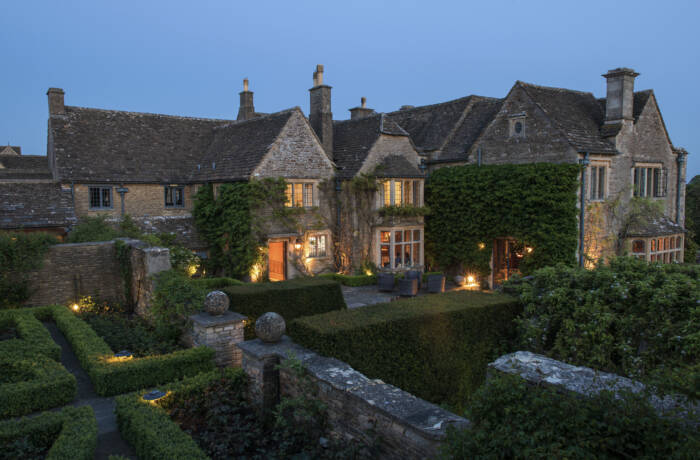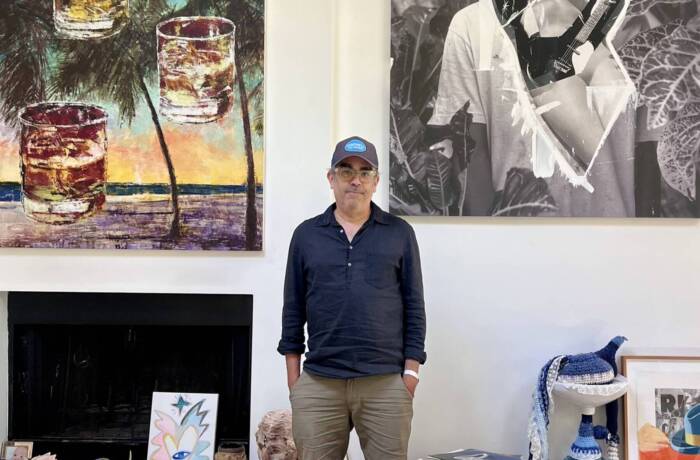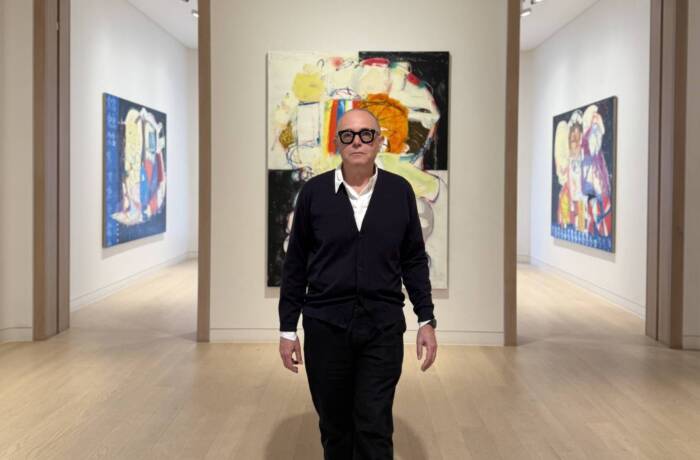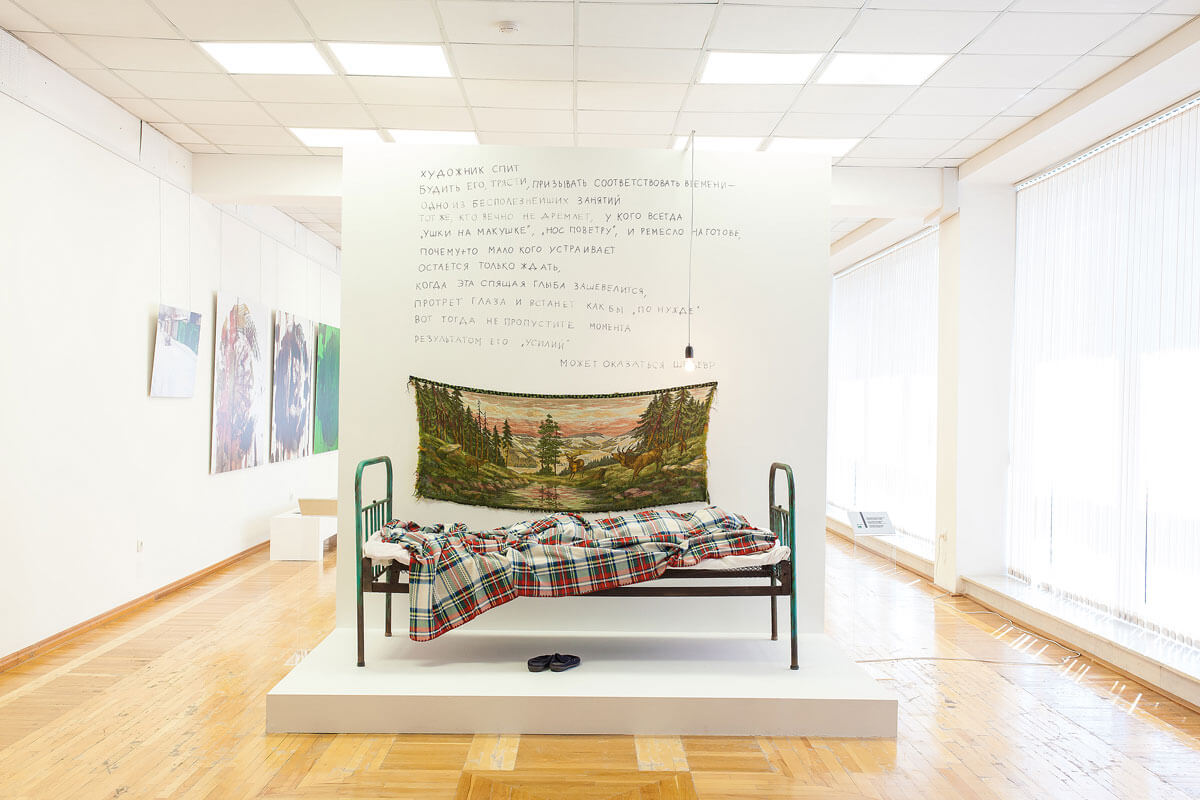
‘The Artist is Asleep’, 1996 at the Kasteev Museum of Arts, Almaty in 2015
Once again, Venice becomes a stage for the world’s best art with the 57th edition of the Biennale opening this month. Under the direction of Christine Macel, chief curator at the Centre Pompidou, this is the first year that artists from Central Asia are represented in the Biennale’s main Giardini pavilion, as part of the curatorial project VIVA ARTE VIVA. Millie Walton speaks to Kazakh artistic duo Yelena and Viktor Vorobyev about the re-creation of their 1996 installation, The Artist is Asleep.
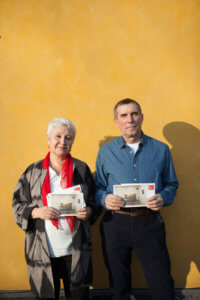
Yelena and Viktor Vorobyev
Millie Walton: What does it mean to be included in this year’s Biennale curatorial project?
Yelena and Viktor Vorobyev: The most important is the feeling of belonging to a great important international project, when you feel part of the global world. This happens not so often, but here – the Venice Biennale’s main pavilion for the very first time. It doesn’t matter anymore whether the curatorial position coincides with major world trends, the mainstream, so to speak. Christine Macel’s vision is well founded and thought-out. As for our piece, it fits logically into her concept. Thus Macel’s and our positions reinforce each other. We’re glad it turned out that our modest work will not be lost in a series of many interesting three-dimensional projects by 120 invited artists from different countries.
MW: Has the 1996 installation been altered at all for the new space or is it re-created as an exact replica of the original?
Y&VV:Our 2017 version of the installation The Artist is Asleep is not an exact replica of the 1996 original, but it is still very close to the old one. The cover and the bed sheets are different, but it does not matter for the concept of the work. It should just give an idea that an artist is sleeping on the bed. Also the text is handwritten, so the installation is slightly different each time.
Read next: British model, Charli Howard’s battle against Size Zero
MW:What was your inspiration for the piece?
Y&VV:In 1995 the Soros Foundation-Kazakhstan published a series of catalogues on 10 Kazakhstani artists. Among them was published our paintings and drawings catalogue. The organizers of that series asked artists to write a statement. Since we were actually immersed in the meditative practice of painting that bordered on sleep – between the moment of dumb contemplation of an empty canvas and convulsive waking up, the moment of clarity, further action – the following text was written as a credo:
“The Artist is Asleep.
To wake him, to shake him, to urge to conform to his time is an utterly useless endeavour. But the one who is always wide awake, always is “all ears”, knows “which way the wind blows” and has his craft at the ready, does not suit many for some reason.
All one can do is to wait for the sleeping boulder to stir, rub open his eyes and get up as if to relieve himself.
Well then don’t let the moment slip. His efforts may result in a masterpiece.”
Our critics had a good laugh over this strange statement, but printed it anyway.
In 1996 we were invited to take part in a group show devoted to human rights. The exhibition was held in a grandiose building which housed a business center. As we have always been opponents of glamour, we decided to do something that was contrary to that situation to cause cognitive dissonance with a respectable audience. That’s how the idea just to “illustrate” this short text came about. We decided to illustrate it by making an installation with “a poor sleeping artist.”
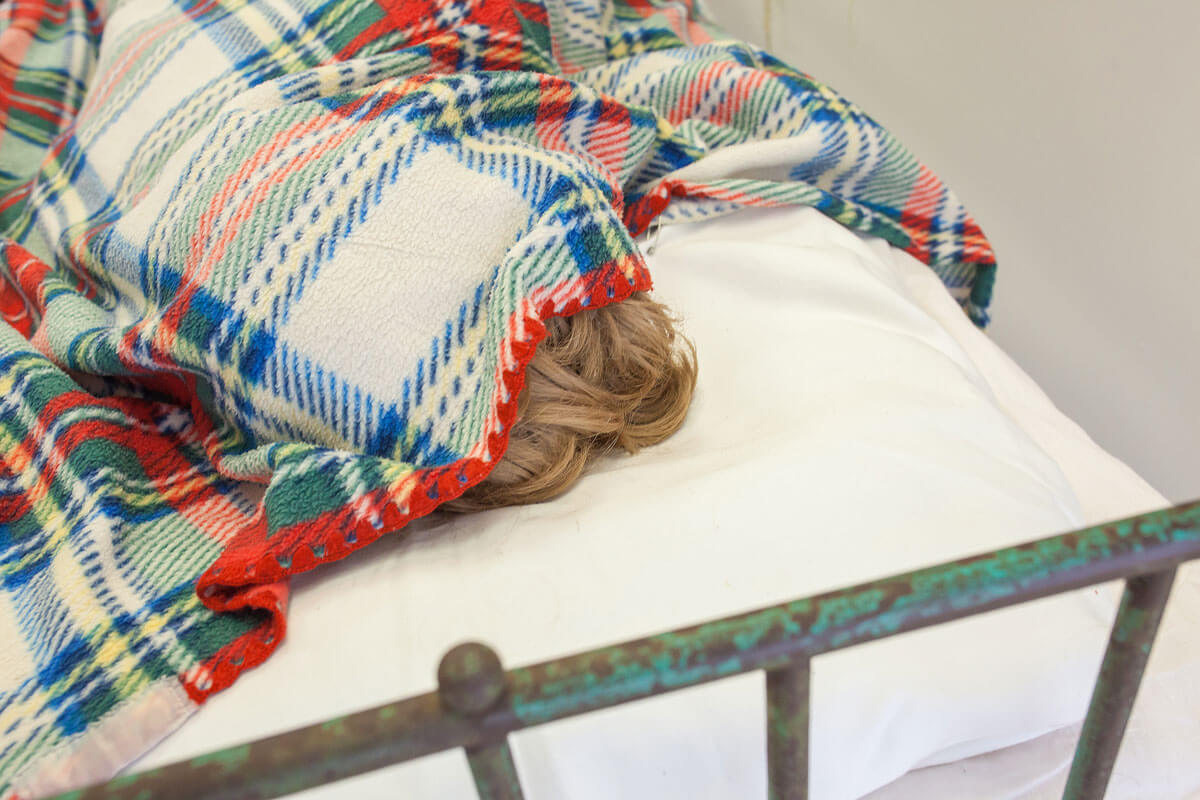
‘The Artist Is Asleep’ (detail), 1996, at the Kasteev Museum of Arts, Almaty in 2015
MW: How is the installation still relevant to modern audiences?
Y&VV: We think that the figure of artist, creator still has value. The ability to visualize ideas that are important for many is just an amazing skill. Modern audiences are able to perceive the metaphors offered by different artists. Our work is, on one hand, a metaphor for the secrets of creativity and, on the other, a narrative describing the life of the recent era as well as the ironic context in relation to ourselves.
MW: What’s next?
Y&VV: There are many ideas that we would like to realize and of course we plan to participate in exhibitions.

